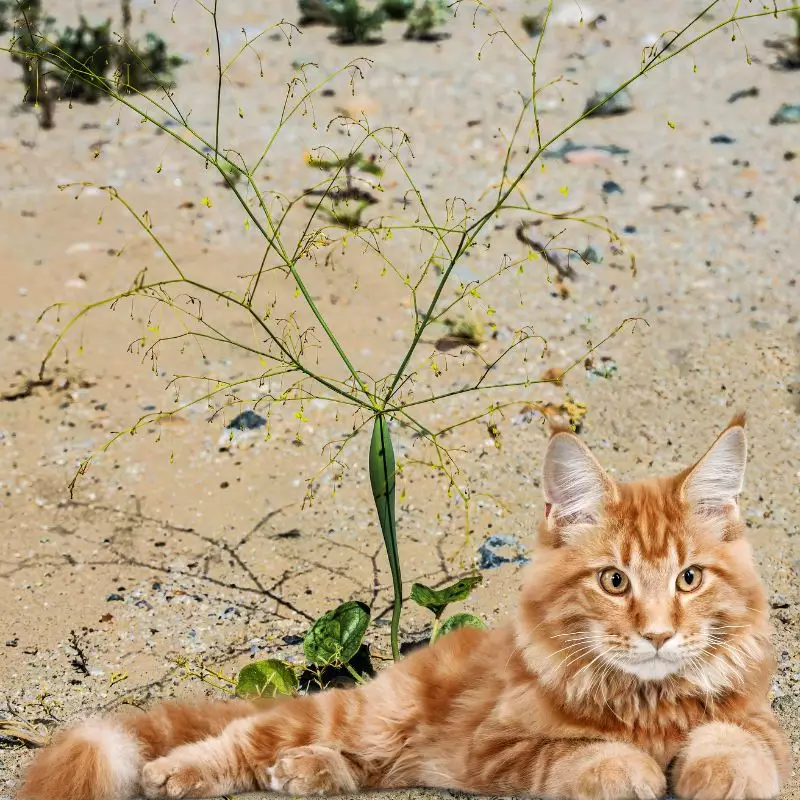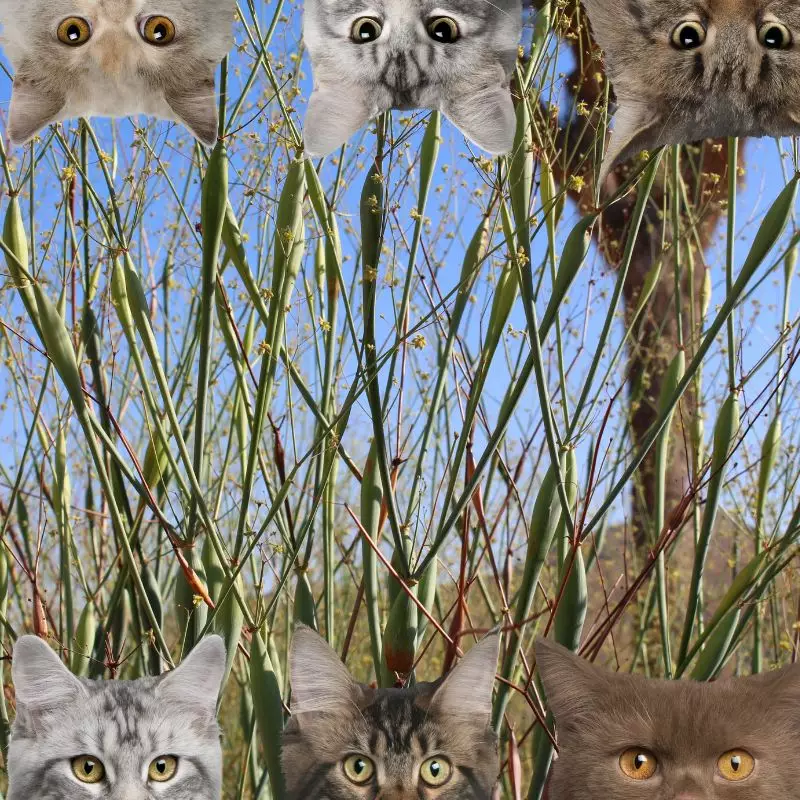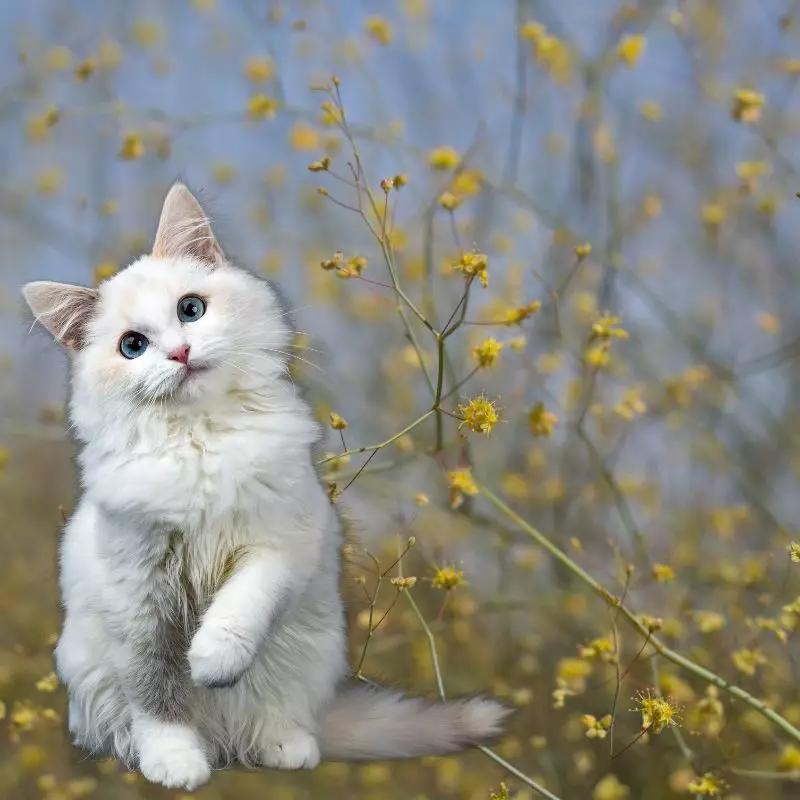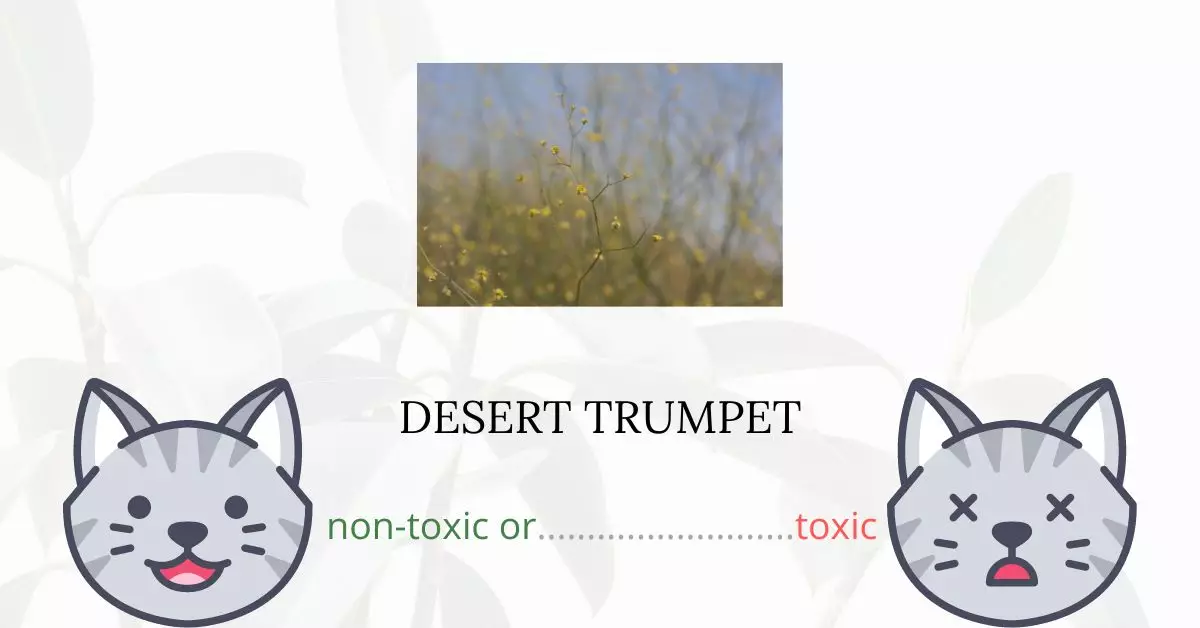Desert trumpet (Eriogonum inflatum) is not toxic to cats and is considered safe for them.
This conclusion is backed by information from authoritative sources such as The American Society for the Prevention of Cruelty to Animals (ASPCA) and PetMD. This article was diligently written in collaboration with a team of experienced DVMs (doctors of veterinary medicine). With their invaluable input and our comprehensive research across high-authority websites, we aim to provide accurate and up-to-date insights about the potential risks and safety of various plants, including Desert Trumpet, and their effects on cats.
While the Desert Trumpet is non-toxic, it’s essential to note that consumption of any plant material can lead to digestive upset for some cats. Hence, it’s always recommended to monitor your cat’s interactions with plants, ensuring they do not ingest any part of them.
Can Cats Eat Desert Trumpet?

Desert trumpets are a lovely addition to any garden. They add color, but they might be too enticing for your cat.
The desert trumpet is one of the numerous safe options for your cat. Although the ASPCA does not mention this flower in its database of hazardous plants, cats are obligate carnivores who require no plant in their diet. It simply implies that eating plants makes your cat unwell and causes gagging or undigested food to be thrown up.
It is recommended to keep your plants away from your cats to prevent any gastrointestinal issues.
What is Desert Trumpet?

Desert trumpet (Eriogonum inflatum), a member of the buckwheat or knotweed family, is mainly found in warmer regions from northern Arizona to Baja California. It blooms all year at heights ranging from 100 to 5,900 feet.
The swollen stems of the desert trumpet, sometimes known as a bottle stopper, can be found in a variety of settings. It can be found in sandy to gravelly washes, mixed grasslands, and desert landscapes with saltbush, creosote, and mesquite at lower elevations. It grows in sagebrush and pinyon/juniper forests at slightly higher elevations.
It’s a glabrous erect perennial herb that grows up to three feet tall and is generally grayish-green. The perianth, which contains the flowers, is yellow with greenish or reddish midribs and densely coated with curled coarse hairs. The stamens emerge from the floral tube. The leaves are basal, with egg-shaped (ovate) and rounded blades linked to a long petiole (stem) of 2 to 6 cm in length.
The blooms are small, measuring about 2 to 3 millimeters in length, and are loosely grouped in an open inflorescence (cymose). Desert buckwheat has all of these traits plus an inflated stem.
Keeping Cats Away From Desert Trumpet

The majority of cats dislike getting wet unexpectedly. As a result, shooing away unwelcome visitors with water can be very efficient. It’s a non-toxic, non-harmful strategy. If you want your cats to remain out of your yard, this is a great method to do it.
Use landscape fabric staples to fasten chicken wire on the soil (the long, U-shaped wires that you push in to secure landscaping fabric). Cats won’t be able to dig through the chicken wire, and the thin wire would be painful for their paws.
Since cats don’t like the smell and taste of vinegar, you may also try spraying this on your plants. Making your plants unpalatable will keep your cats away from your plants.
Plants to Avoid For Your Cats
If you are a cat owner and unsure if the plants growing in your yard are harmful to your cats, check out this list of toxic plants for cats. You can also check our list of non-toxic plants for cats.





